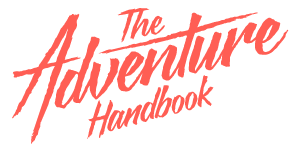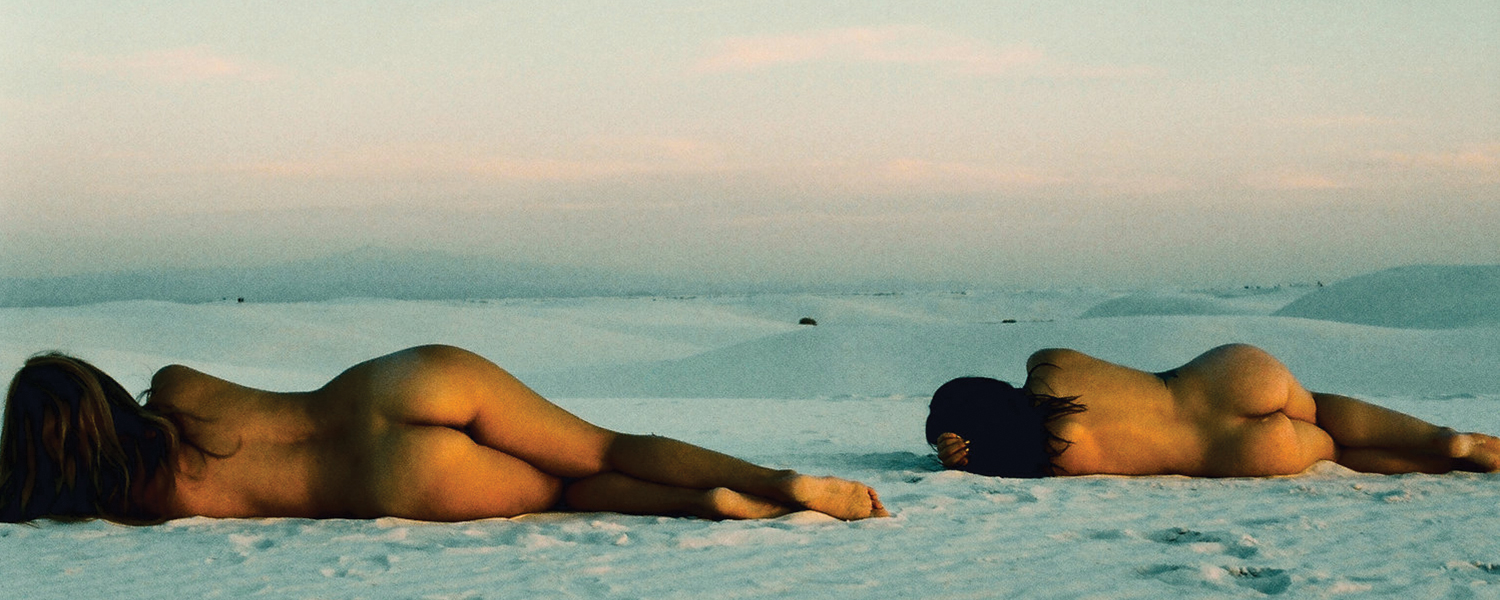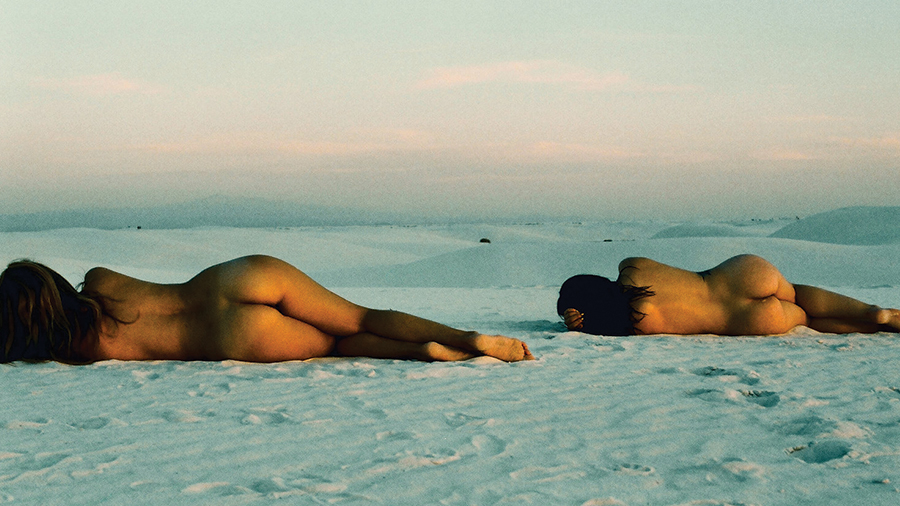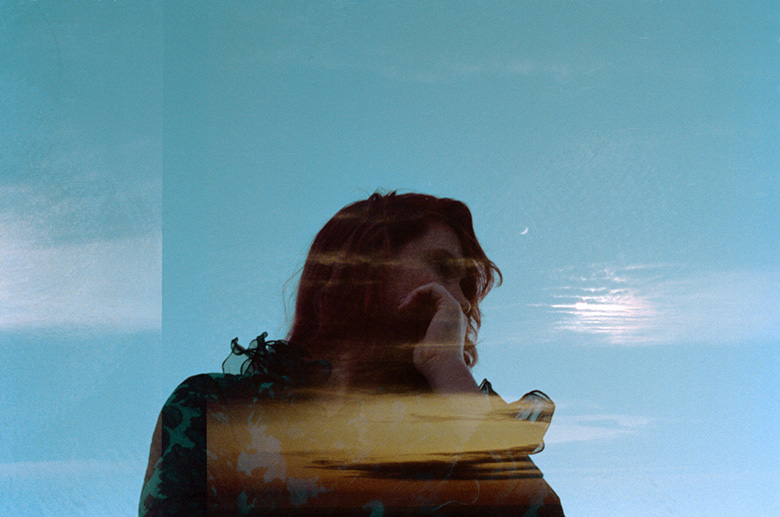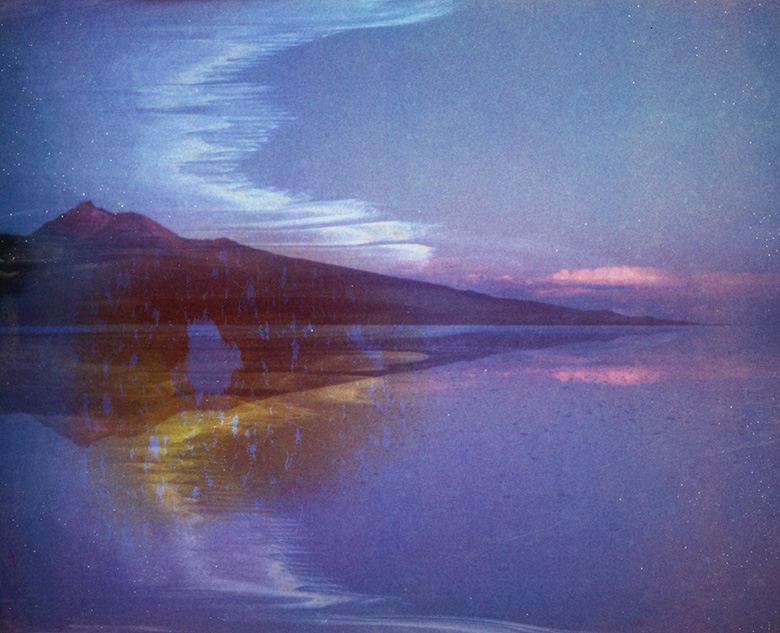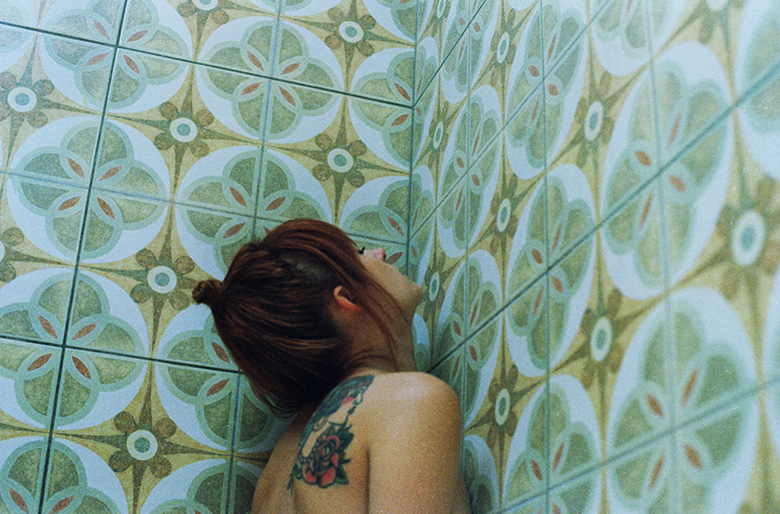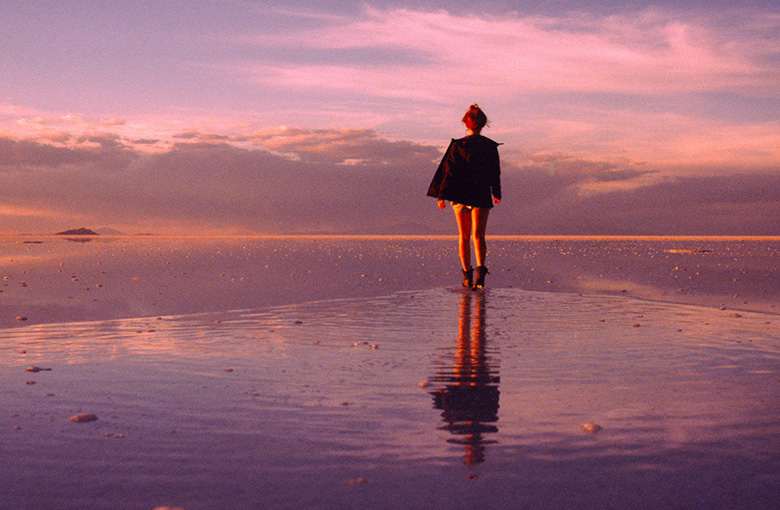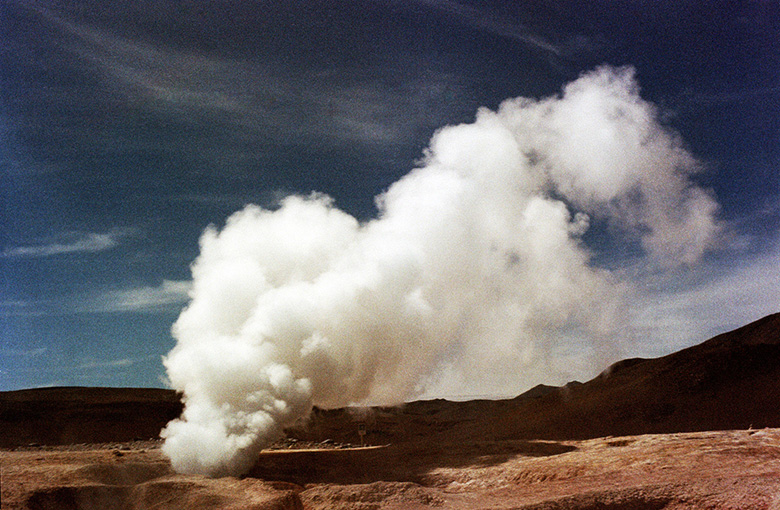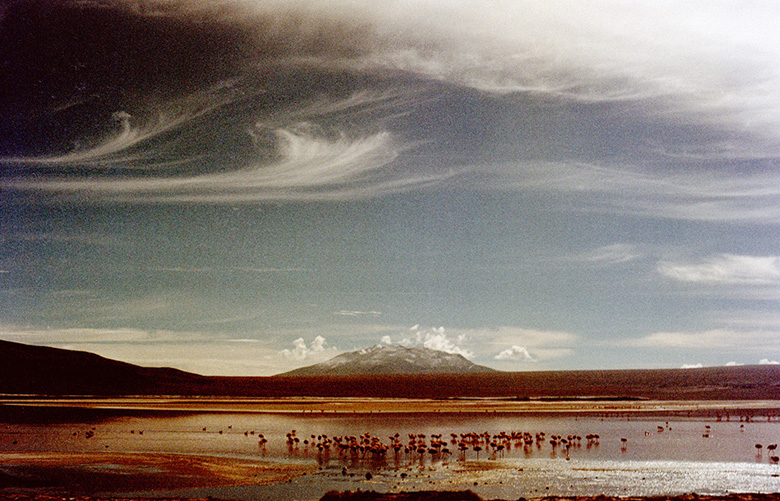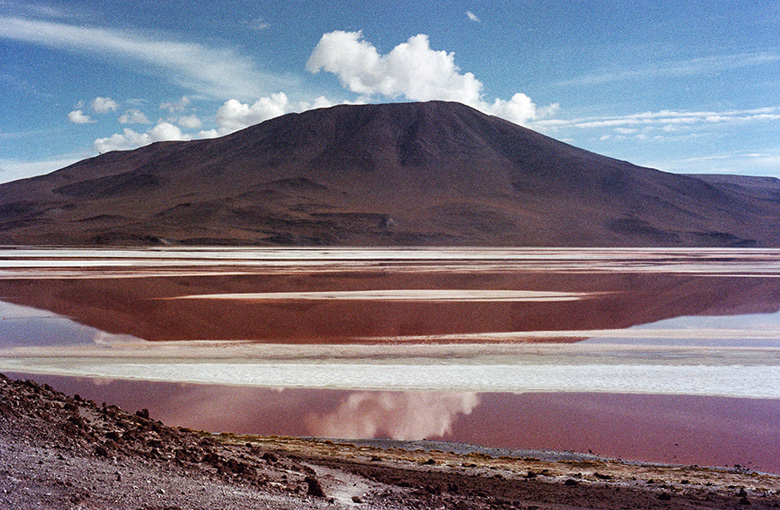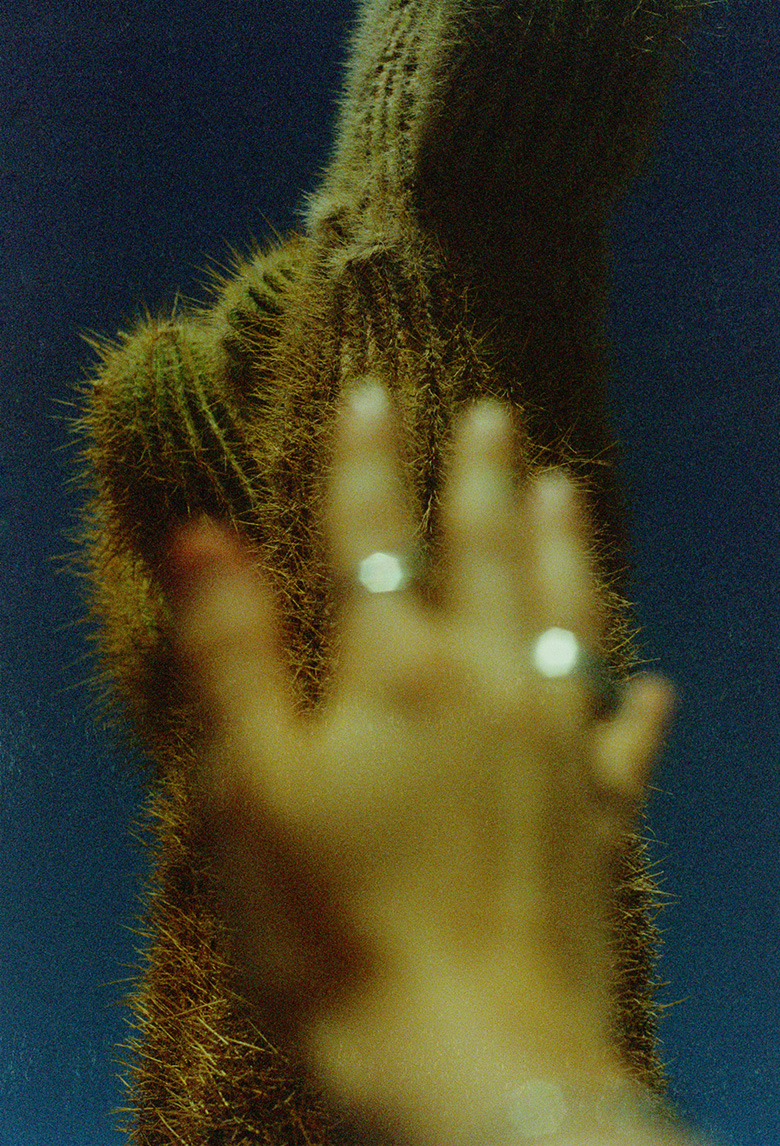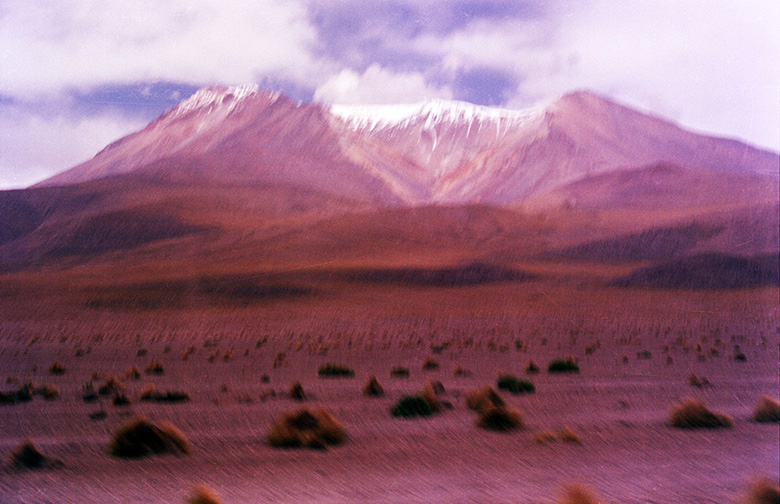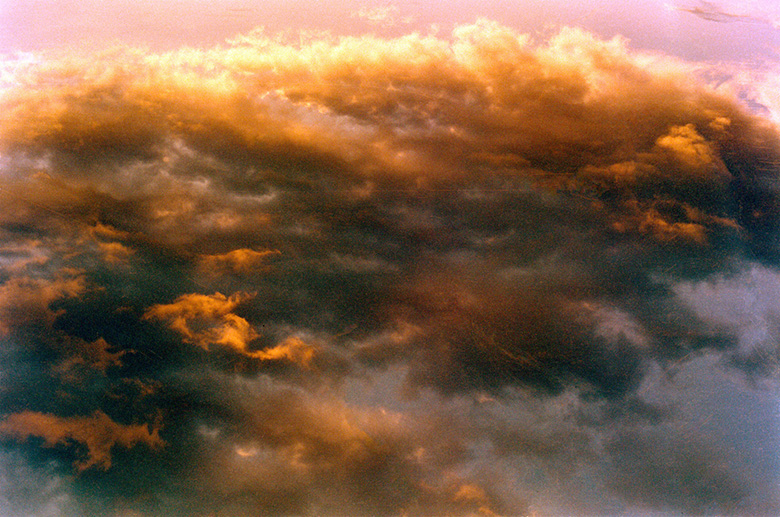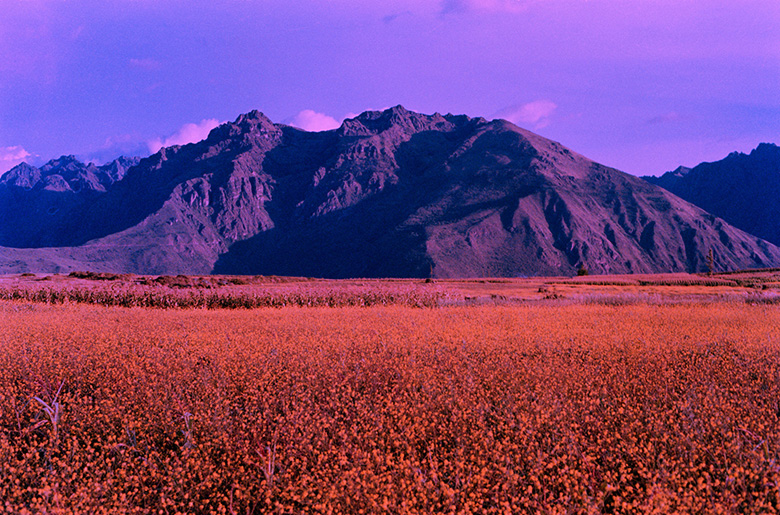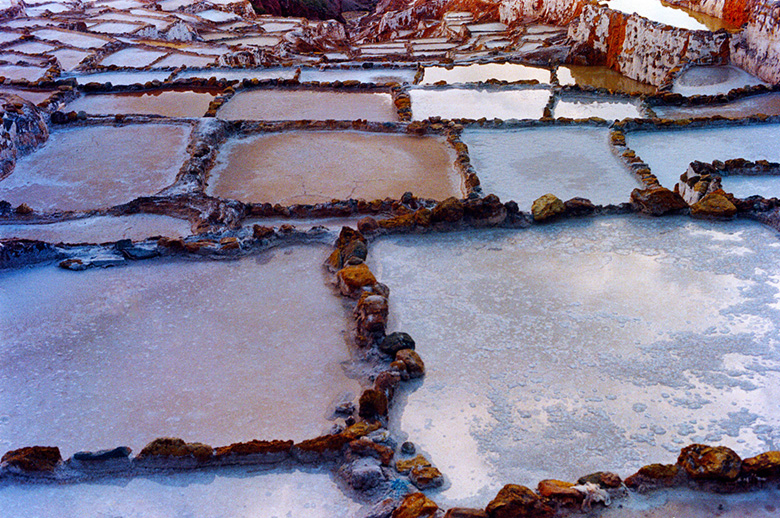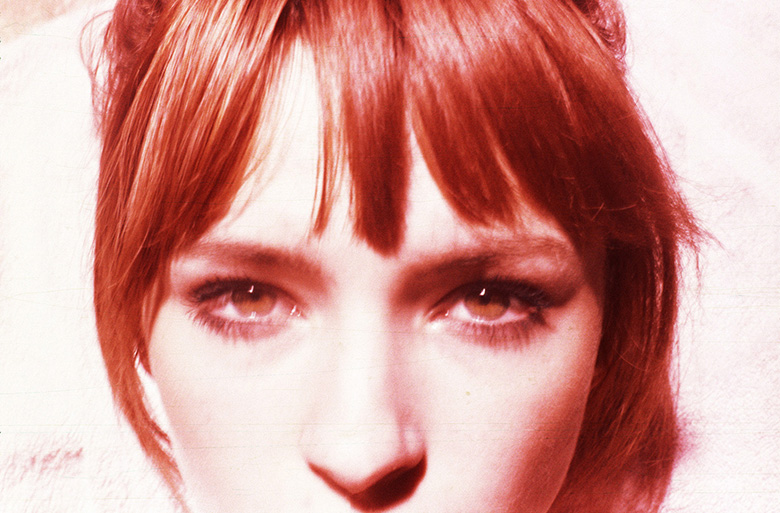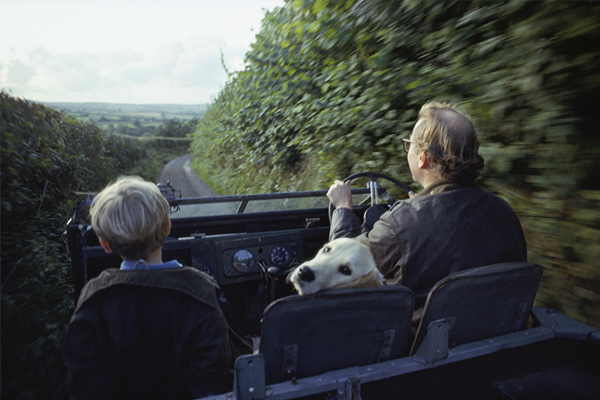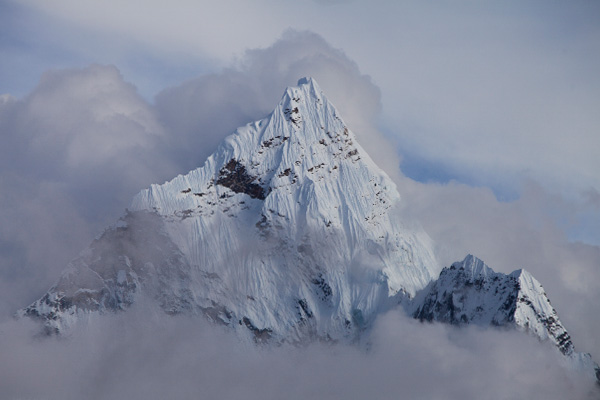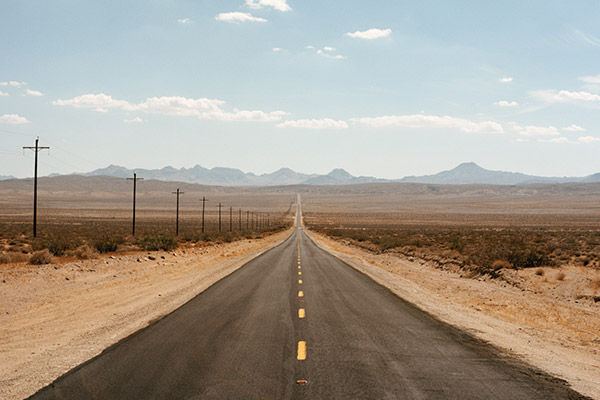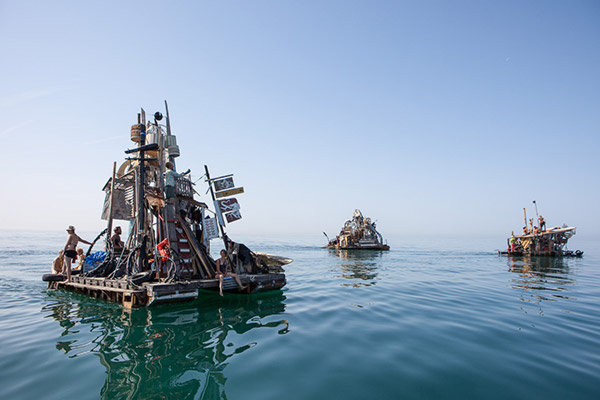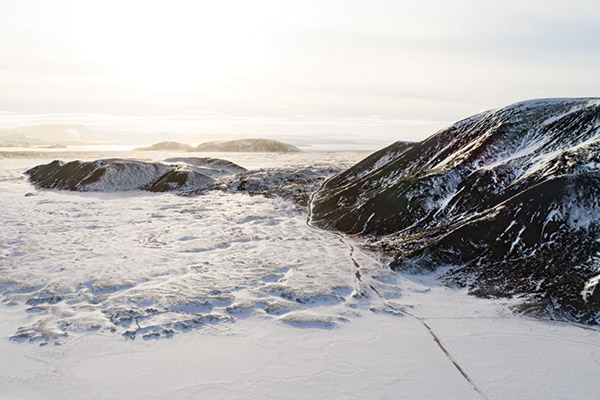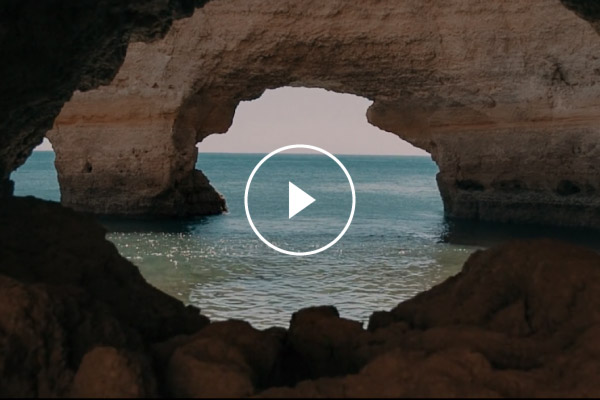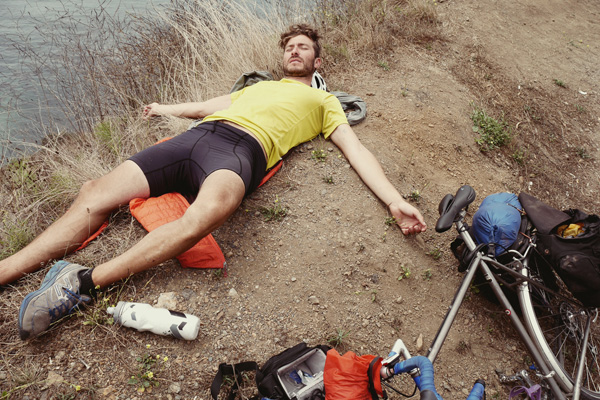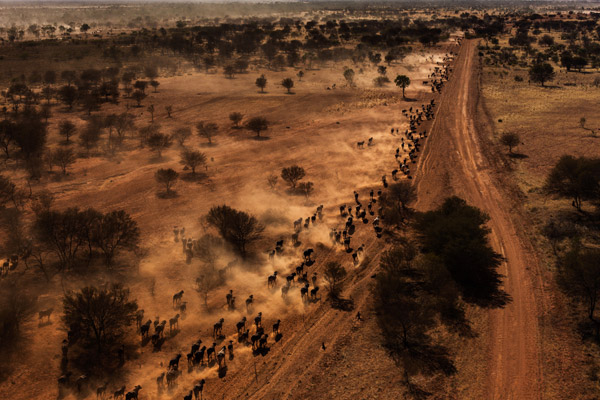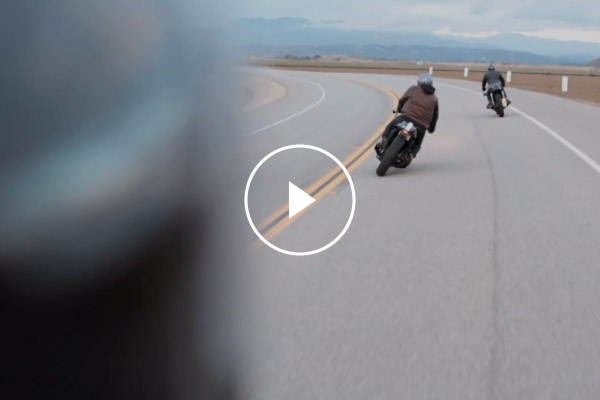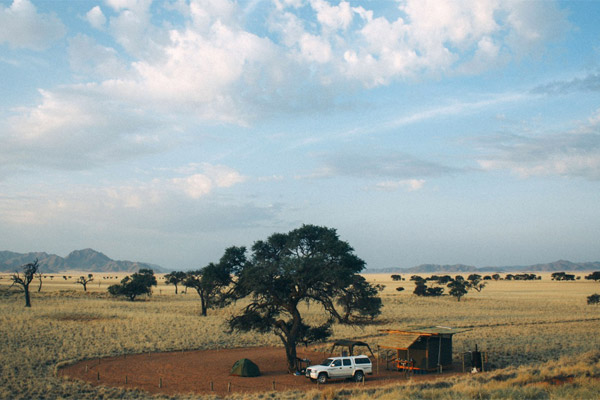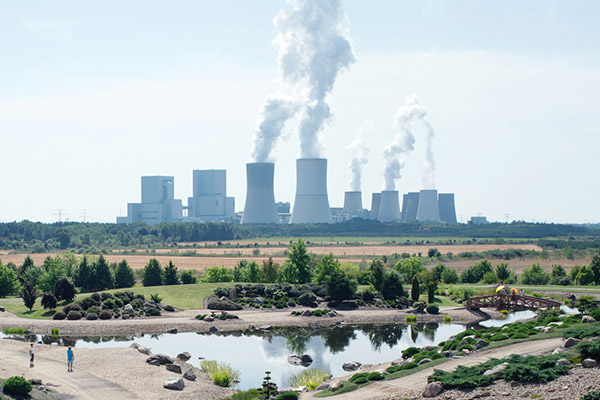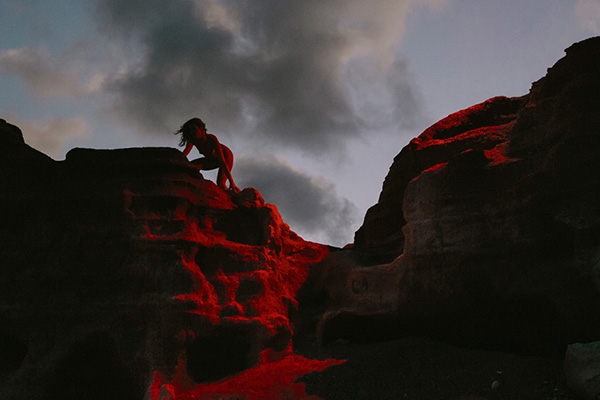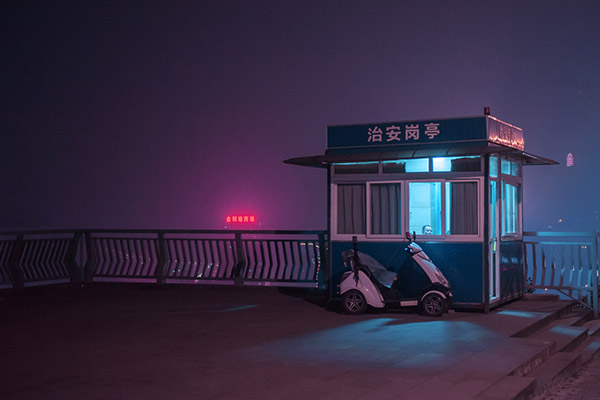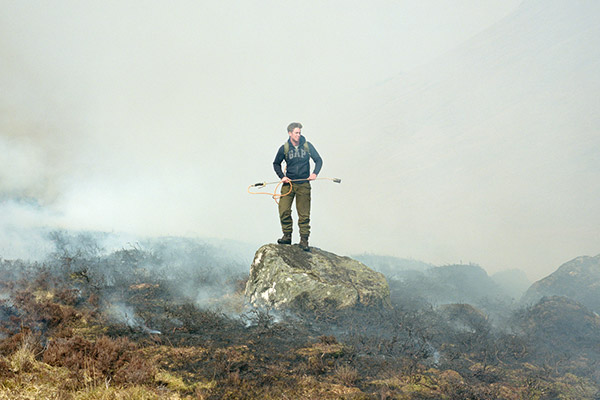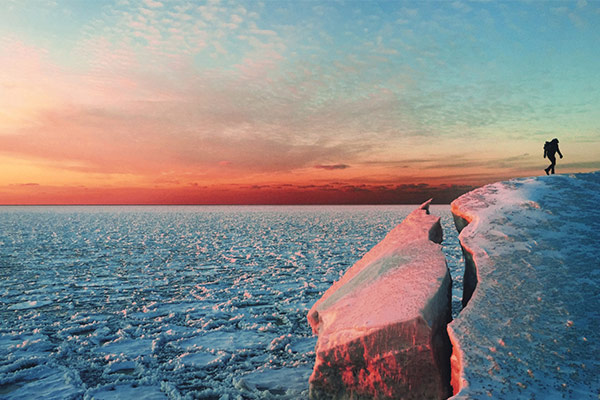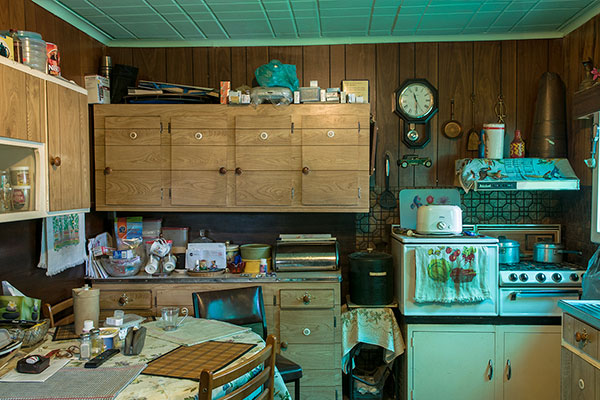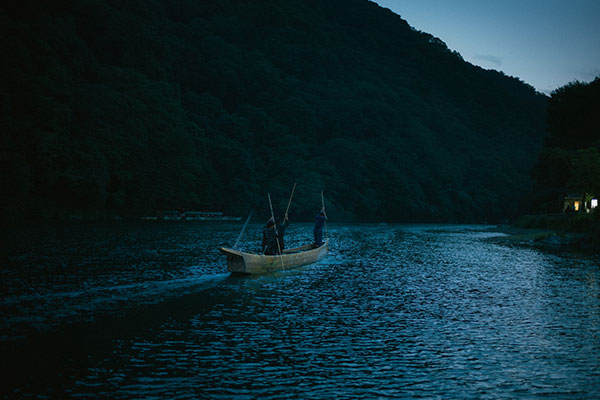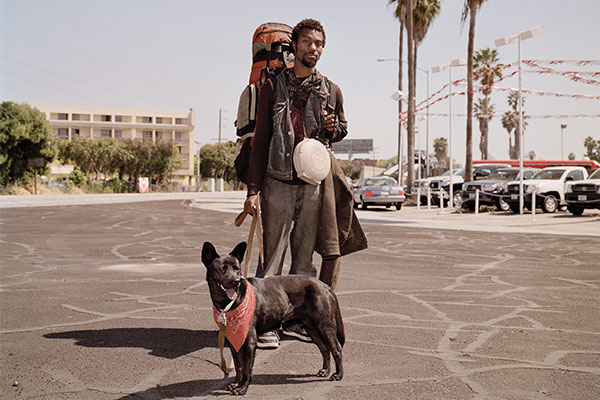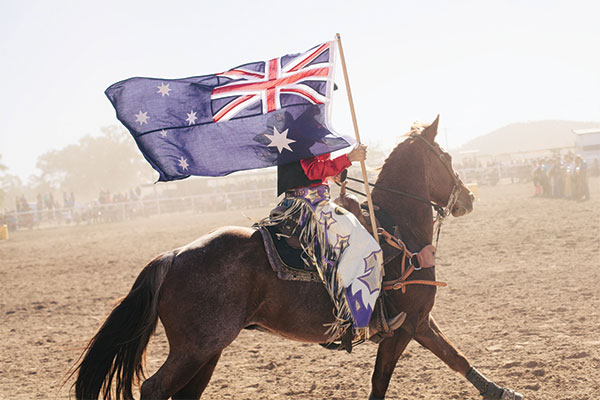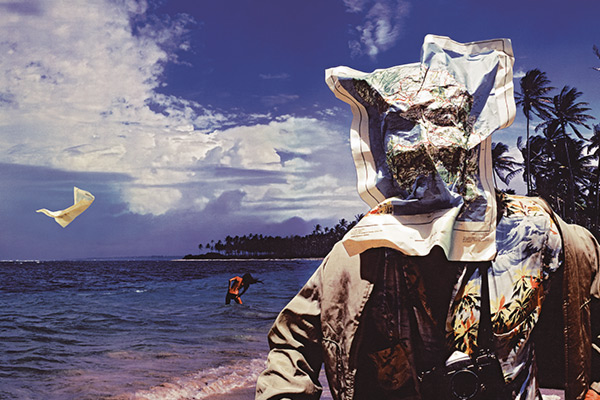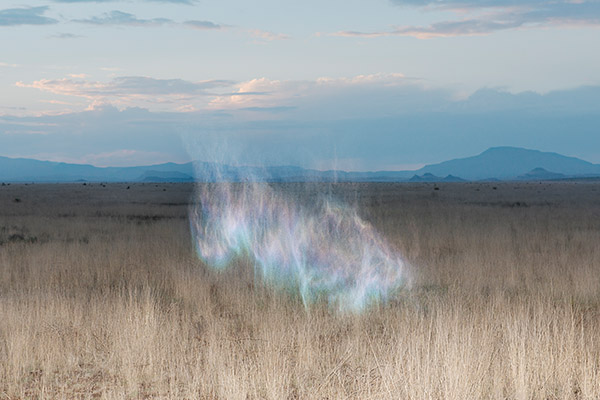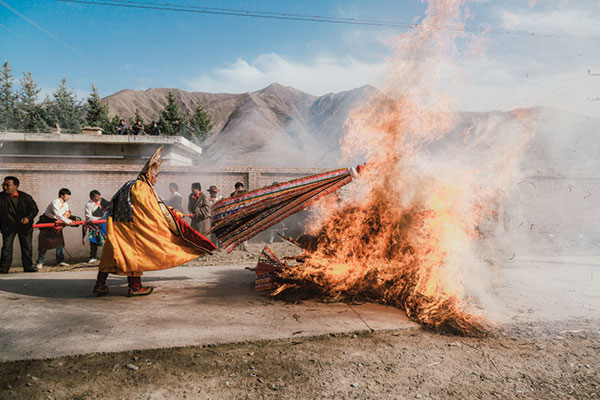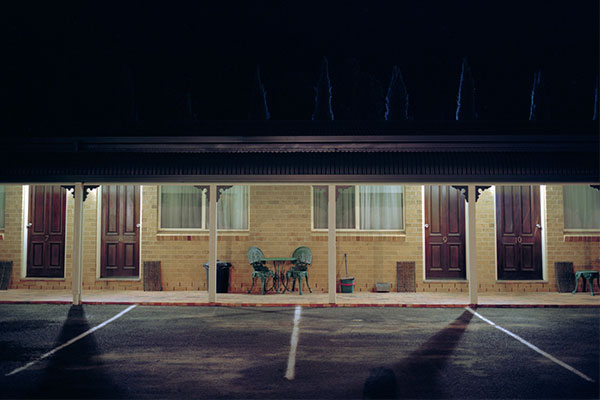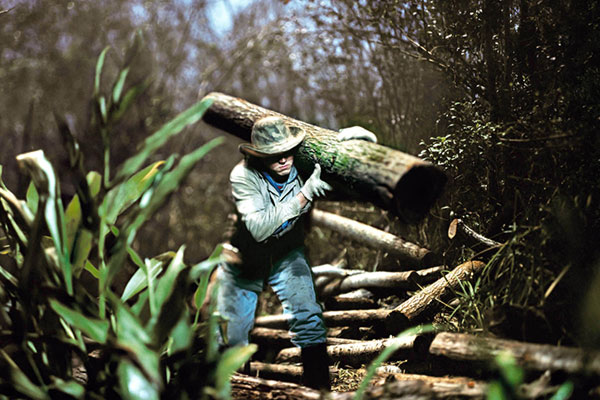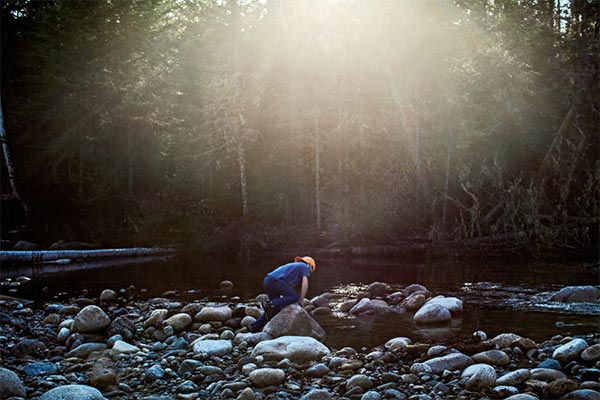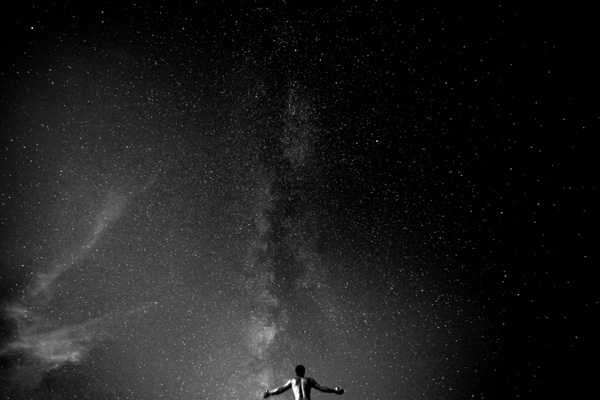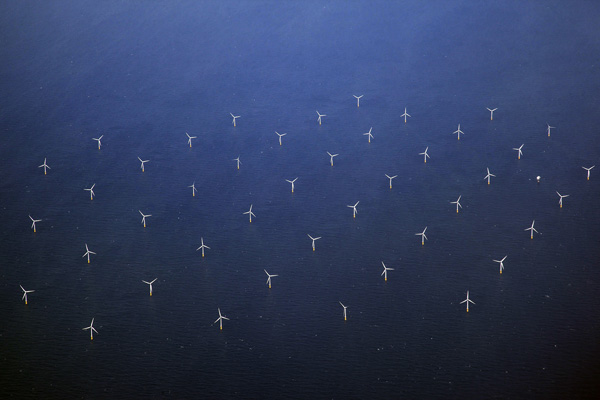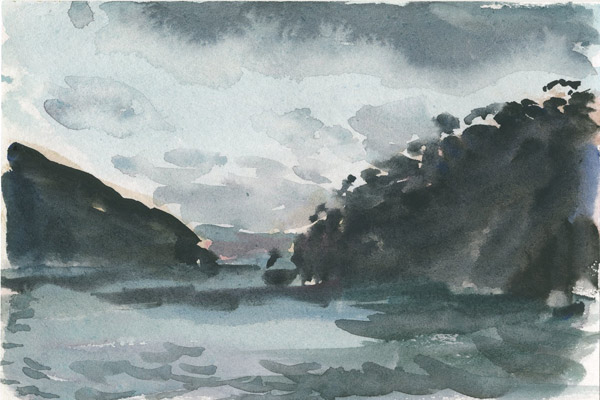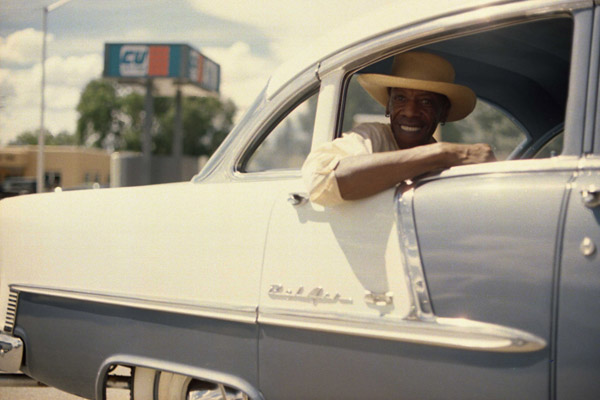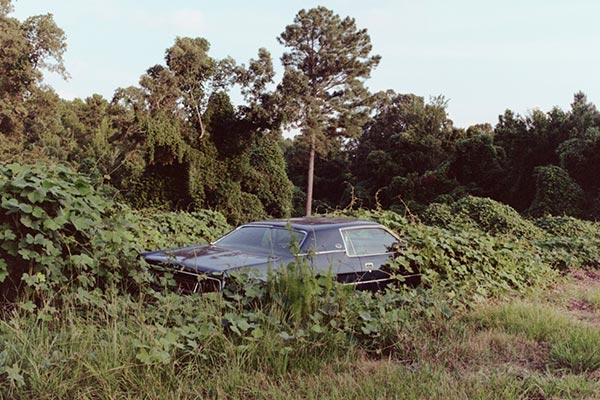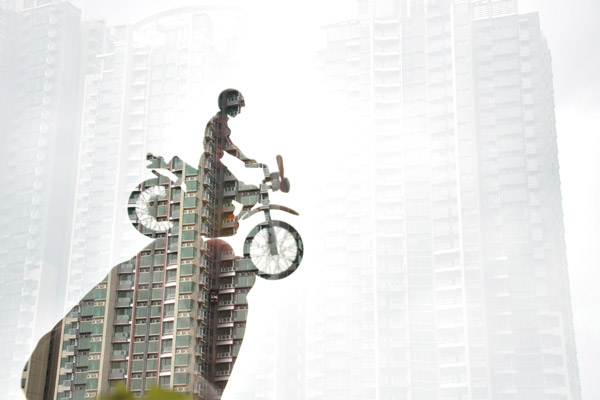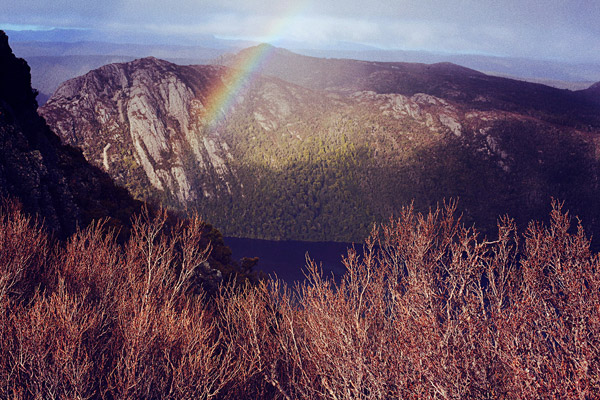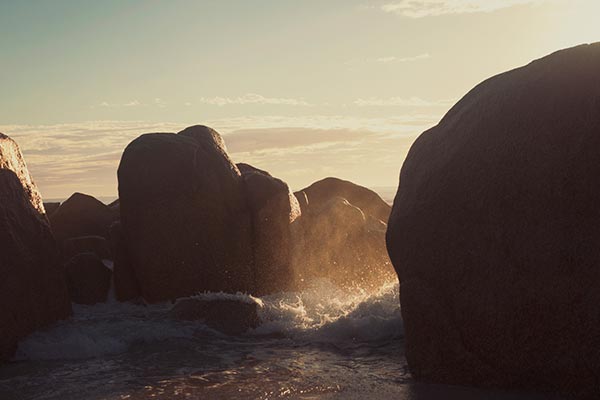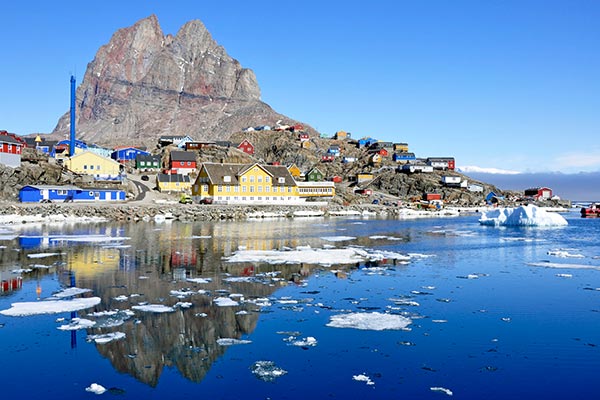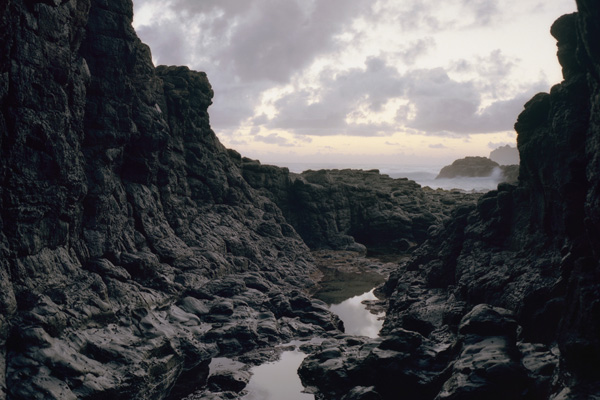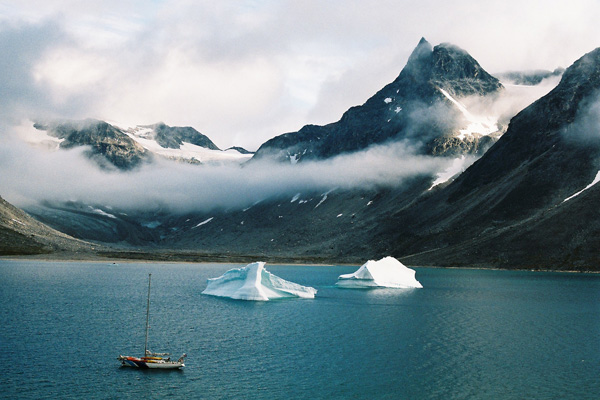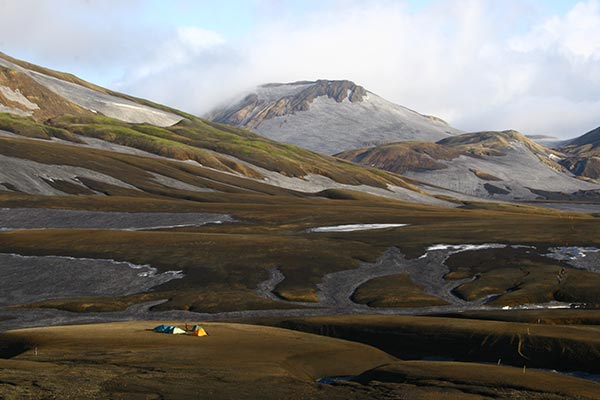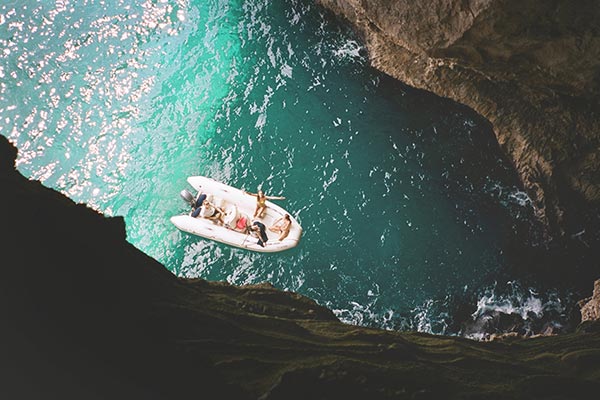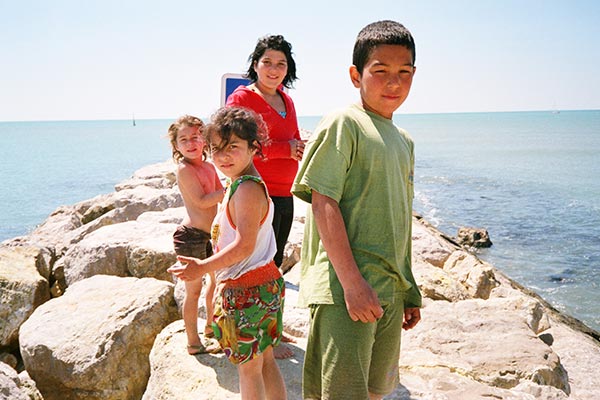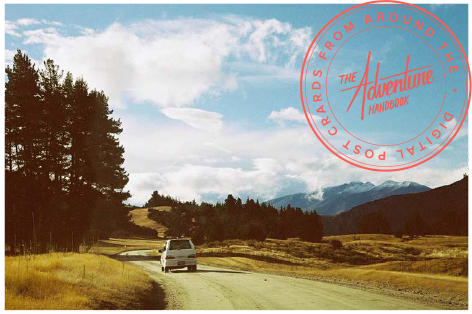There isn’t a waking minute where 27-year-old film photographer and psychotherapist in training Edie Sunday doesn’t try to make sense out of her own existence. The Texan-born artist with a non-stop analytical mind has garnered a following for her personal journey through intimate, surrealistic portrait and landscape photography. Having recently returned from South America, Edie chatted with us about her deeper aspirations to travel to rural, exotic lands, her challenged mental and physical capacities, as well as the craft behind journaling herself awake.
You’re drawn to photographing yourself when you’re feeling overwhelmed with emotion – a confronting and vulnerable act for many. Talk us through the process in which you bring yourself from a consumed state to acting upon “this would make a great photo”.
I don’t think I am ever thinking about what kind of photo it would make. Capturing the photo is more of a compulsion to act on my feelings, to channel them rather than sit and let them consume me. This day in age it feels like our options for navigating through bad feelings are limited to some form of escapism like drinking or altering one’s mind in some way. We all know how that ends. Some are luckier and have an easy time reaching out to friends and family when they’re feeling low but I’m not one of those people. I’m very solitary so when feeling like this, I would prefer to take a photograph. Even if the photo turns out terrible, it’s a cathartic act and I feel some sense of relief. If I capture the moment as it truly is, if I create something beautiful out of my mess of emotions, maybe I will understand them in visual form, and maybe someone else will too. Maybe myself and others will derive comfort from what I made in that dark moment.
What meanings have been revealed from your own self-portraits that have surprised you?
My self-portraits help me live with myself a little better. I escape my own internal negative filter of feeling flawed, undesirable or broken, into just feeling human. I see my own energy and spirit as not perfect but unique, I see my body as not that of a supermodel but beautiful nonetheless, and I see my face as one that people connect with and want to know. The greatest gift photography has given me is to be more open to seeing myself objectively from the outside in, and to realise that I am no different than anyone else. I can be curious about myself rather than judge myself.
“If I capture the moment as it truly is, if I create something beautiful out of my mess of emotions, maybe I will understand them in visual form and maybe someone else will too. Maybe myself and others will derive comfort from what I made in that dark moment.”
In what ways has your field of work in psychology influenced your creative process? In the end, does it help you to theorise your captures?
I’ve loved psychology as long as I’ve loved photography. They’ve always intertwined. There is no doubt that psychological processes are evident in my work but those elements would be there even if I wasn’t training as a psychologist. I’m self-aware to a fault and I have an analytic mind that won’t let me go a day, even a minute, without trying to make sense out of the dilemma of waking up every day knowing I still exist and don’t know what I am supposed to do with that fact. In the end, my captures are more importantly documentations to show I am alive rather than having to make sense of them.
You’ve just returned from Bolivia, Chile, and Peru. Why here?
I fell in love with Central America (mainly Costa Rica) a couple of years back and since then I’d been dying to go further and explore South America. There is something about Latin culture that draws me in, the smells, the language, the food, the landscapes. It’s probably my privileged Northern American brain that makes this up but things seem simpler to me in these parts of the world. They are not without political strife and economic struggle by any means but there is something about their way of living that feels purer than the way I’ve lived mine. I have always resented my American culture and our absolute insistence on being out of touch with anything that matters, nature, animals, family, human connectedness. People don’t seem to have the same degree of obsession with capitalism in the South American countries I’ve visited (these were mostly rural areas, I cannot speak for the larger cities). People are much more likely to feel connected to the land, to their ancestors, and to hold in mind that there is something bigger than iPhones, expensive clothes and big houses. Maybe it’s because in a lot of rural areas people can’t afford these luxuries. But I seek out these places because I’m, pardon my language, fucking sick of these luxuries and the distance they impose between myself and what it really means to be alive. I want to wake up and appreciate the earth and its natural beauty and I want to feel full from these things. I resent Western capitalism for instilling in me a void so large in my soul it can never be filled, and for making me believe that the only way to fill it is with things that cost money or give me a buzz and give fleeting satisfaction. I want more for my life, and going to places where people seem to have a more authentic existence was only a start, a taste of what may be to come for me.
What did you learn from this adventure?
We build up myths in our minds about what a place will be like, and the place is never anything like the myth – it’s better and worse. Road-tripping the entire USA would be easier than getting from point A to point B in Bolivia. Travelling these vast, often desolate lands is physically and mentally strenuous. Altitude can make you feel like you are dying when you are simply trying to brush your teeth. I learned about dehydration, exhaustion, broken cameras, sunlight so bright you can hardly open your eyes (and I’m from Texas), and that some locals love you and others resent your very existence. When the travel gets strenuous, tensions get high between partners and friends but your frustrations likely have nothing to do with the other person and more to do with how far outside of your tiny bubble you are. If a ten-hour hike through Torres del Paine sounded like it would kill me, it probably would. I listened to my body and was satisfied to give up ‘I have to do everything all the time amazingly and perfectly and push my body to its limits and blah blah blah’ and just sit down, have a Pisco Sour, and watch a sunset from a bench.
You talk about the beauty of film photography with its surprise and imperfections in best capturing the human element. Tell us about a moment during this trip where you felt “I am so human.”
There were so many of those moments. Being in the Bolivian salt flats will definitely do that to you. The sun and heat are unrelenting, everything is white, and you are generally disoriented while also so taken aback by the beauty that it’s hard to describe a discrete emotion. One time we went out for sunset in the salt flats and found an area covered in enough water to get that effect of the world being turned upside down, reflected above and below you. I had all these photos in my mind that I wanted to take but the sun was setting so fast. I was beyond exhaustion, the salt was too rough for me to take off my shoes and I was wearing these big ugly boots, I couldn’t take my clothes off because there were families nearby. I couldn’t figure out how to be in front of the camera. Nothing was going as planned. Then my camera battery died… just like that. It was like the universe was telling me to chill out, sit back, and watch this sunset that you will only ever see once in your life. Take it in as a human being, not a photographer. I gave up shooting and I watched the fire sky turn to dark blues and saw the stars gradually appear. It kept getting more and more beautiful and I was fighting my frustration that I couldn’t capture it no matter what, while my friend was shooting roll after roll of film. I had to sit still with it. I had to be there. It was a privilege I couldn’t have anticipated, and it’s one of my most vivid memories of the entire trip. I will never forget that hour of my life.
“I seek out these places because I’m, pardon my language, fucking sick of… luxuries and the distance they impose between myself and what it really means to be alive. I want to wake up and appreciate the earth and its natural beauty and I want to feel full from these things.”
What new photography techniques or aesthetic are you most excited about right now?
I’ve recently started developing my own slide (E6) film and it’s been a blessing and a curse. Sometimes I’m completely amazed at how beautiful it comes out, and other times I completely destroy a roll I was so excited about. Living with the disappointment is good training for me. I’ve also recently started shooting a lot of instant film again as I got away from that for a while. Instant film was my first love, so that’s really meaningful and exciting. I don’t look at other peoples’ work anymore (for the time being) and I think I’m more excited about retreating into my own mind and drudging up from the depths something out of my own soul. It will have nothing to do with technique or aesthetic and I have no idea what will come out, but it will be something. Oh – I was also just gifted my recently deceased grandfather’s 35mm cameraman Olympus OM2, which I’ve always wanted. I never even knew he was a photographer. Turns out he took self-portraits as well. That camera and I have a lot of work to do together.
What advice would you give to your teenage self who only just picked up her first professional camera?
Have fun. Seriously. That’s all. Shoot what you love because you love to shoot and forget all the rest. You don’t have to be a conceptual photographer or a photographer with ‘a message’ for your work to matter. Your ‘ordinary’ life is just as valuable as someone else’s (seemingly) ‘extraordinary’ life.
What should we be looking out for in the future?
I have a solo show in Austin, TX on May 27. It’ll be a collection of my favourite photos over the past three or so years, where I’ll also be selling zines with other collections. Whatever doesn’t sell will be sold through my Instagram and website. I’m also moving to Nashville in a month so I hope the new landscape inspires me to create new work.
Anything else you’d like to add?
Travelling is an incredible inspiration but you don’t have to go far to create your own world and make work that means something to you and others.
ediesunday.com | Interview with Tiffany Tran for AHB
Receive a postcard from us sign up

